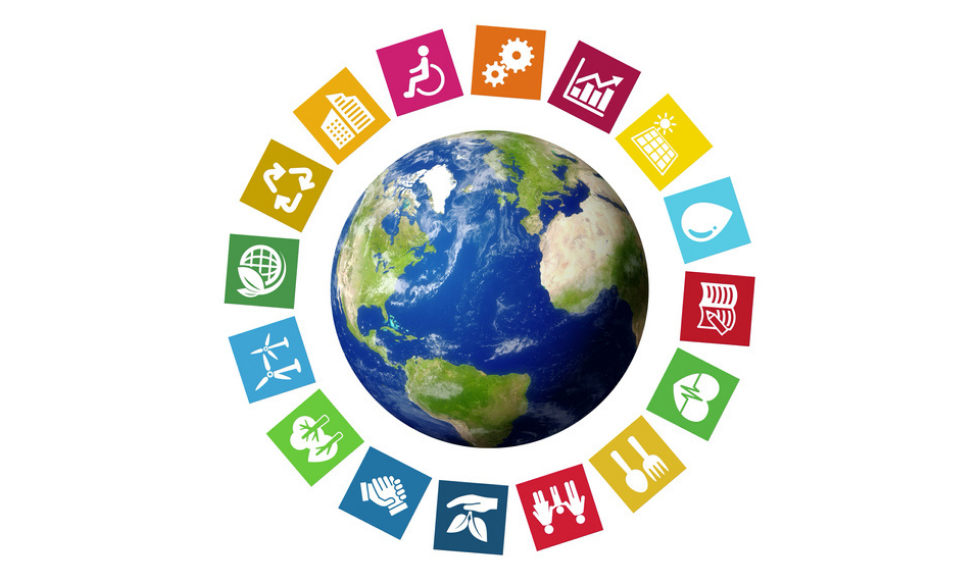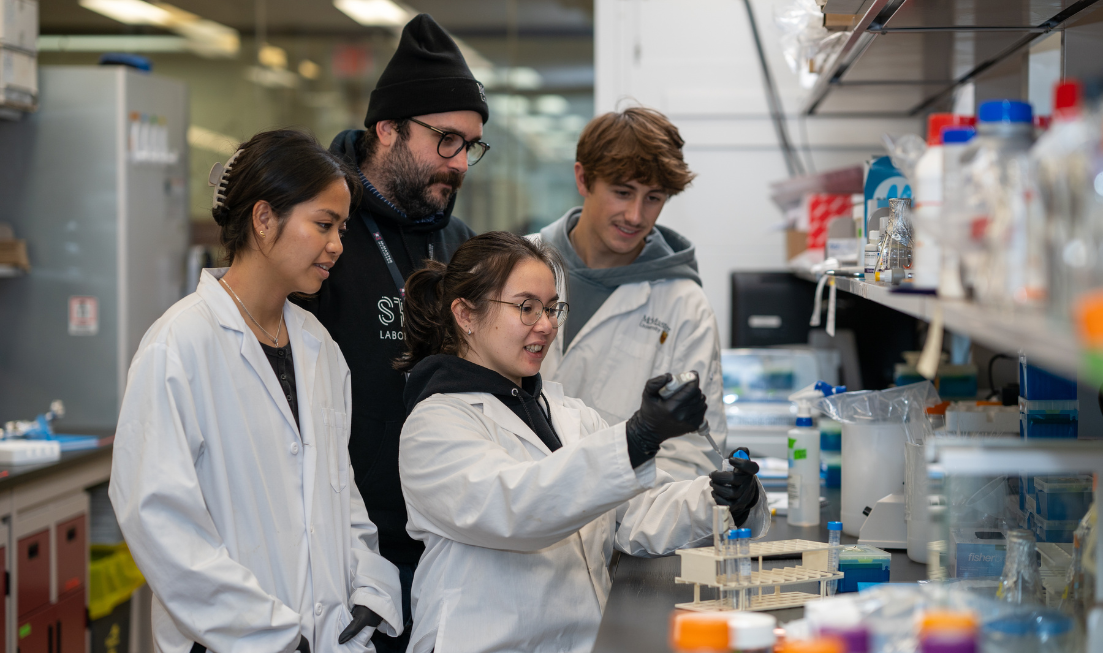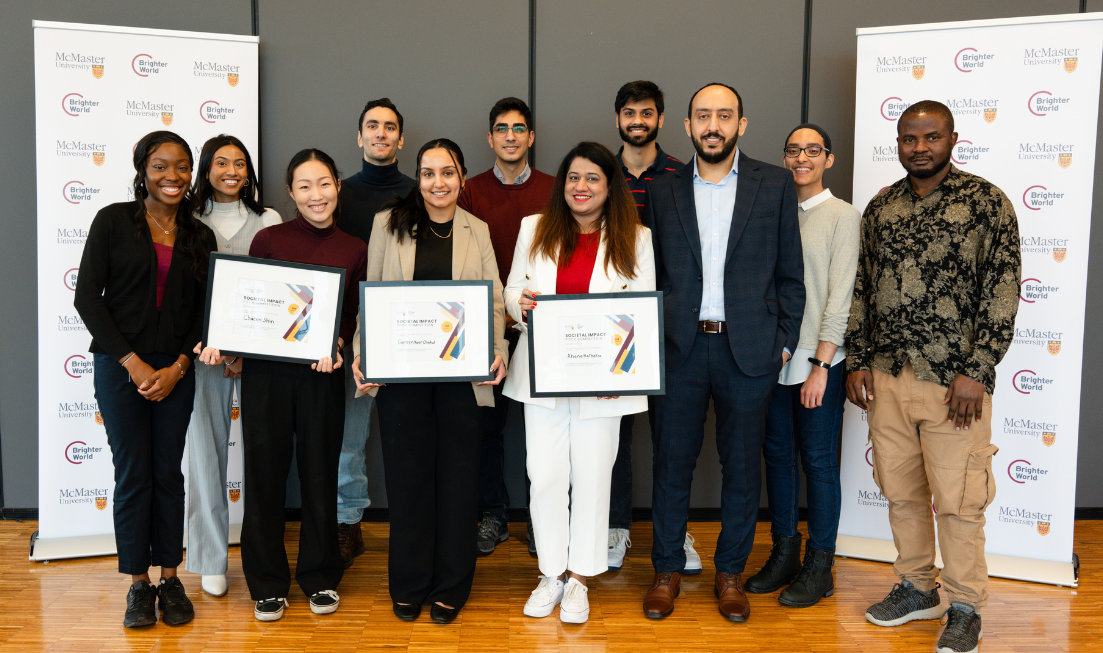Graduate student engages in interdisciplinary efforts to respond to community needs at the US-Mexico border

Work-integrated learning is a core component of McMaster’s graduate Global Health program, which requires students to complete a 10-week practicum to gain hands-on experience in the global health field.
This year, Master students are completing their experiential learning in local and global organizations to put into practice the theory, concepts, and methods taught in the program such as Katrina Leslie who is working with Solidarity Engineering (Solidarity).
Addressing SDG 6 (Clean Water and Sanitation), specifically in places of conflict or displacement, Solidarity is a humanitarian response organization currently based at the United States (US)-Mexico border. Importantly, Solidarity recognizes that humanitarian crises are products of complex global relations, historic power imbalances, and environmental injustices, and focuses on inclusive, innovative, and sustainable solutions.
Presently, Solidarity is working to improve the lives of displaced populations (including asylum-seekers, refugees, migrants, and stateless persons) in cartel-controlled Mexican border cities by implementing community-driven interventions. As the sole engineering organization providing aid in asylum-seeking camps along the border, a large majority of their work has focused on addressing critical gaps in water, sanitation, hygiene, and infrastructure. However, due to the diverse needs of the population, Solidarity also engages in educational outreach, public health research, advocacy, and other projects.
As Solidarity partners with humanitarian response organizations like Global Response Management (GRM) and Médicos Sin Fronteras (MSF), Katrina is gaining cross-cutting skills. Solidarity has also partnered with Team fEMR recently, an open-source Electronic Medical Records system that promotes data driven communication in low-resource settings. By engaging in public health research, she is exploring the causal relationships between improvements in health and the organizations interventions, while advocating for the health, safety, and human rights of asylum-seekers. Katrina is also project managing a menstrual health and equity program that will be implemented next year for women, girls, and gender-diverse asylum-seekers in Mexico.
The practicum opportunity allows Katrina to work along-side MSc in Global Health alumni, Joe Salter, an SE Project Manager who is currently conducting research to understand disease outcomes among asylum seekers living in Reynosa, Mexico. Joe Salter explains:
“Katrina has been an immense help to the entire NGO. She has written well-received social media posts, identified and prioritized grant opportunities, contributed to the design of research projects, conducted a literature review on diarrheal disease in infants living in refugee camps, and is simply a wonderful presence with her infectious enthusiasm.”
Here are some of Katrina’s insights based on her international learning experience with Solidarity:
1. As you are currently working remotely, can you discuss the international experience you are gaining?
Solidarity is a diverse and multidisciplinary organization with team members from several disciplines including engineering, nursing, education, public health, and logistics. It has been enlightening to see how, through interdisciplinary efforts, Solidarity responds effectively, sustainably, and appropriately to beneficiary and community needs. As Solidarity team members are from multiple countries across the globe, I have had the privilege of working in a truly international team. Though I have currently been working remotely, I have learned so much from my colleagues working in the field. As Canadians and as a global society, we are extremely naive to the refugee crisis and human rights violations occurring along the US-Mexico border. This internship has opened my eyes to this problem and has provided me with an understanding of its underlying factors.
2. What aspects of the work motivates you as a future global health professional?
Three female engineers – Erin Hughes, Chloe Rastatter, and Christa Cook – founded Solidarity in 2020 to respond to the critical need for water, sanitation, and hygiene in asylum-seeking camps along the US-Mexico border. It has been incredibly inspiring to see how hard the co-founders have worked to help asylum-seekers along the border.
Solidarity provides aid in incredibly dangerous Mexican border cities, in an environment shaped by unjust policies, political corruption, and uncertainty. On a daily basis, the team at Solidarity witnesses the inhumane and discriminatory circumstances that asylum-seekers face. Despite the challenge and trauma of working in these settings, they never give up. Their leadership, perseverance, and dedication is admirable, and it has been a privilege to learn from them.
Through opportunities with organizations such as Solidarity, graduate students gain real-world experience with activities targeted to the United Nations’ Sustainable Development Goals.
If you want to hear more about Solidarity, take a listen to their podcast called Dignity Displaced. There is a new episode coming up soon that Katrina recommends; it is a moving story about an asylum-seeker from Central America who fled terrible danger in Guatemala and fought to reach safety in the United States. To learn more about Solidarity’s current projects and the refugee crisis at the US-Mexico border, you can also check out their instagram @solidarityengineering.
Global Health News, Student and Alumni ProfilesRelated News
News Listing

Daily News ➚
McMaster earns top spot for graduate student research intensity in annual rankings
Global Health News
December 9, 2024

December 4, 2024

